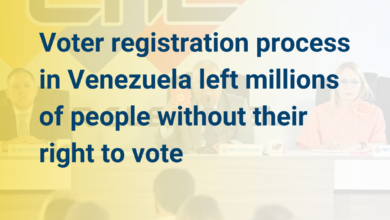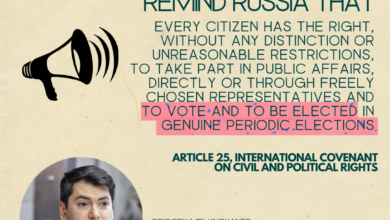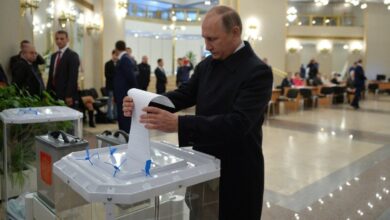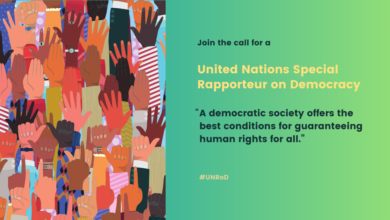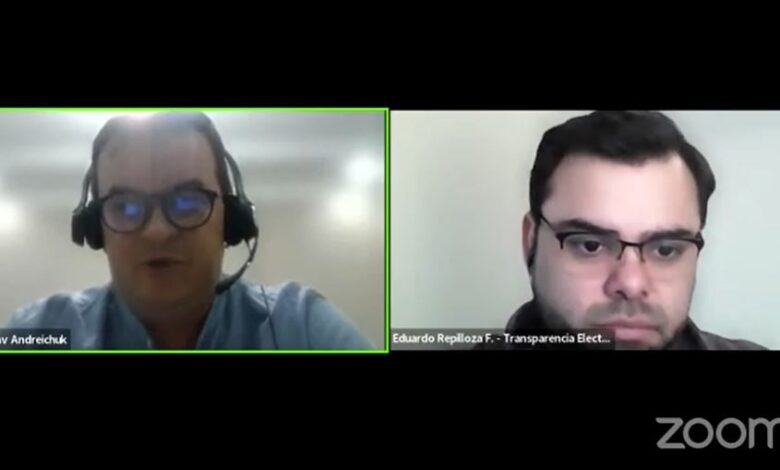
On Wednesday, September 6th, Transparencia Electoral and DemoAmlat had a conversation with Stanislav Andreichuk, co-chairman of the Movement for Defence of Voters’ Rights (“GOLOS”), about the integrity in next Sunday’s local election in Russia and the situation of domestic election monitors in the country.
In a statement published on August 17th, Transparencia Electoral and ACSEO rejected the arbitrary detention of co-chairman of Golos, Grigori Melkoniants, detained by Russian authorities under accusations of being part of an organization declared “undesirable” and classified as a “foreign agent”.
Golos is an independent electoral monitor based in Russia that denounced the numerous irregularities identified during the Municipal and Regional Elections that were held in Russia between September 9th and 11th, 2022, and the arrest occurs less than a month before the electoral farces that Moscow seeks to hold to appoint regional assemblies and municipal councils in the illegally annexed Ukrainian regions of Luhansk, Donetsk, Zaporizhia and Kherson.
Additionally to the 3 by-elections to the State Duma, there are 26 gubernatorial races (21 direct elections and 5 indirectly elected), 20 regional parliamentary elections. These include the four aforementioned illegally occupied Ukrainian regions.
No competition
In a conversation with Eduardo Repilloza-Fernández, Director General of Transparencia Electoral, Andreichuk explained that COVID is still an excuse for the Russian regime to prevent public election campaign events and demonstrations, which has led the election campaign to be held in a heavily restricted and censored virtual environment. Since Facebook and Instagram are blocked in the country, any access to these platforms must be made using a VPN, which drastically reduces their traffic. Instead, most Russians (and the campaign as well) must resort national social media platforms like “VK”, which since 2021 has been owned by a group linked to President Putin.
Andreichuk, who also had to be careful to refer to the ilegally-occupied regions of Ukraine only as “regions under conflict”, explained that in previous years, many volunteers and activists had been gaining access to observe the process at the polling stations with press accreditations, since getting an observer badge was (and still is) so difficult in the country. However, the Central Election Commission realized this strategy used by domestic election monitors and formally closed the door on freelance journalists to be present at the polling stations, allowing only journalists on the staff of media companies.
In their last reports, Golos thoroughly detail the harsh conditions under which opposition candidates can participate in these elections, which has led many of them to drop off races or to decide against running.
Check out the entire webinar here:
